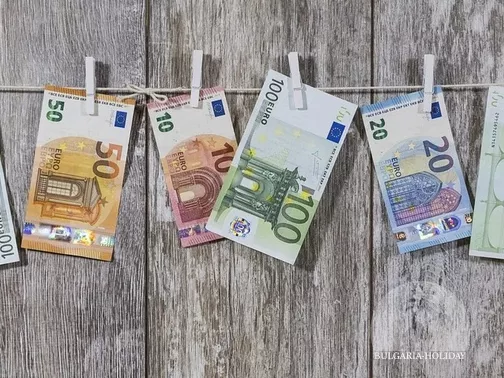
The Bulgarian government plans to join the eurozone on January 1, 2024.
Bulgaria was included on 10 July 2020 in the ERM II exchange rate mechanism, which has existed since 1979 and is adapted to the current situation, used to stabilize the currencies of the Member States before joining the euro area.
After performing the so-called According to the Maastricht criteria, a country aspiring to join the eurozone should receive a positive assessment from the European Central Bank. All countries already participating in it must also agree to expand the euro area.
To receive a positive assessment, Bulgaria must fully comply with the requirements of the European Central Bank. These include, but are not limited to, elements such as inflation, budget deficits, or government debt.
The Bulgarian Finance Minister added that for the successful membership in the euro area the country needs good preparation of all business entities and the public for a seamless and quick transition from payments in BGN to payments in euro.
By June 30, 2021, the Coordinating Council should draft a National Plan for the introduction of the euro in Bulgaria. The BNB (Bulgarian National Bank) will be responsible for the software of ATMs to ensure that they can work with euro banknotes. The BNB is also responsible for the design of Bulgarian euro coins.
A working group of the Consumer Protection Council will monitor the conversion of prices from levs to euros to overcome the vicious practice in the trade of rounding up prices.
A campaign for a „fair introduction of the euro” will also be launched.
The Balkan state has been a member of the European Union since 2007. Accession to the euro system is a prerequisite for each member state, but is not limited to any timeframe.
All sorts of social surveys show the readiness of citizens to switch to a single currency. Bulgarians believe that it will bring them closer to a number of European countries that make decisions in European society.
Business in Bulgaria
Businessmen, including migrants from the CIS countries, perceived the introduction of the euro best of all. They believe that the introduction of the euro as the state currency will help stabilize business and enable it to enter the international market. Business immigration to Bulgaria is expected to become even more attractive to foreigners. According to Eurostat statistics, Russia is in the top three in the number of issued residence permits in Bulgaria. Russian citizens have filed about 70% of the total number of applications. Of these, 40% applied for family reunification, 13% — for studying, 3.5% — for work and 42% — for other reasons. Bulgaria attracts Russian tourists with its loyal migration policy, favorable climate, absence of language barrier and friendly attitude to citizens of other nationalities.
Profitable investment in real estate in Bulgaria
Besides, it is still possible to buy not expensive property in Bulgaria. In this regard, every year it is the citizens of Russia are striving to acquire a permit to enter this country. Residence permit for the purchase of real estate is granted only if a person acquires a property worth at least 600 thousand leva. It must be a residential property — an apartment, cottage with the status of „housing”.
The purchase of the property in Bulgaria is not the basis for the right for permanent residence no matter how much it cost. You must reside in Bulgaria for 5 years to get permanent residency. However, the owners of studios, one — and two-bedroom apartments can obtain a tourist visa for up to three years. The number of visits to the country during this period is not limited. Total time of stay in Bulgaria on such visa is 180 days.
